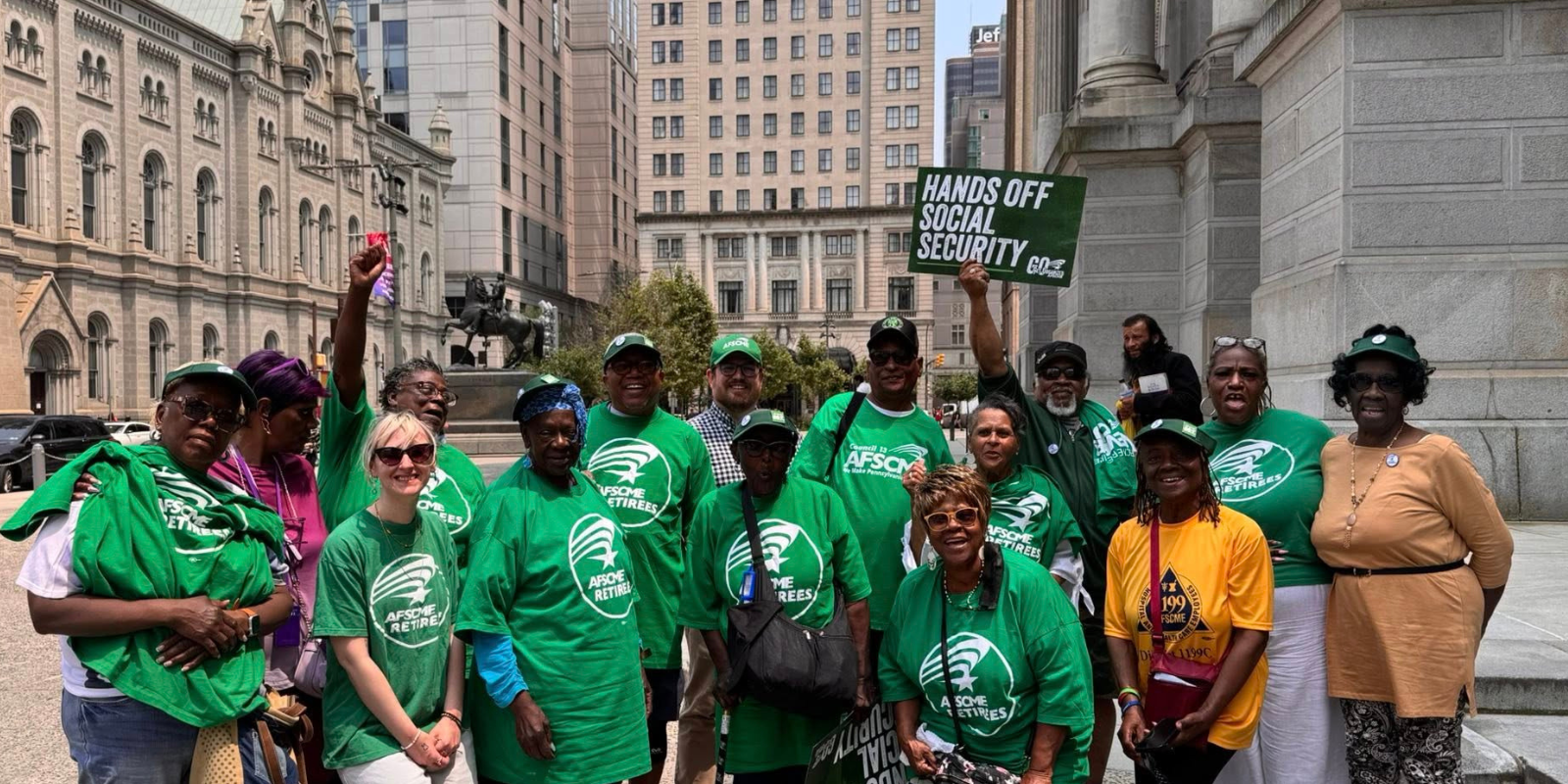
Today is the 90th anniversary of Social Security. In 1935, when President Franklin D. Roosevelt signed the Social Security Act into law, our country was in the midst of the Great Depression.
At first, Social Security was focused primarily on providing retirement benefits for workers 65 years of age and older. It was expanded over the years to include dependents and survivors of retirees as well as workers with disabilities.
Today, more than 70 million people — one in five Americans — receive Social Security benefits.
It is the retirement we’ve earned. It’s the security we were promised. And Social Security has stood the test of time.
But Social Security is under attack today like never before. And we must strengthen our resolve to protect it.
As AFSCME President Lee Saunders said, the attacks amount to “a coordinated assault on the freedom of workers to retire with dignity — all to make the rich even richer.”
AFSCME has a long tradition of fighting to protect Social Security. We are strengthening our commitment today.
“We’re going to keep fighting to build an economy where people who have worked hard their entire lives can retire securely without fear of how they’re going to afford to live and eat,” Saunders said. “That’s the promise of Social Security. By standing together, we can make sure we keep it for workers today and the generations to come.”
New administration unleashes unprecedented attacks
Earlier this year, the so-called Department of Government Efficiency (DOGE) unlawfully accessed sensitive data at the Social Security Administration (SSA), potentially compromising beneficiaries’ records. AFSCME and our allies put a stop to it temporarily by winning a one-of-a-kind injunction. Our union’s case challenging the legality of the DOGE’s record collection is pending.
The so-called “One Big Beautiful Bill Act” that became law last month threatens benefits for current and future retirees — all in the name of giving billionaires even bigger tax cuts.
In addition, the administration has slashed the services senior citizens and other beneficiaries rely on by shutting down offices and laying off the workers who keep Social Security running.
That’s not all. The administration has threatened to limit telephone access for routine services, such as reporting a change of address or getting a tax document. This would force about 3.4 million beneficiaries to travel to field offices to verify their identity. That’s a heavy burden on people with mobility issues or those who live in rural areas.
As if this weren’t enough, Treasury Secretary Scott Bessent recently hinted that the administration might be looking for ways to privatize Social Security. Privatization would expose retirement savings to market risks and jeopardize the financial security of retirees — something working people worked their whole lives to secure.
“This is all par for the course for an administration that continues to elevate greedy Wall Street CEOs who smear Social Security as a ‘Ponzi scheme’ and claim retirees wouldn’t miss their benefits if they lost them,” Saunders said.
One AFSCME member’s worry
Matt Nelson, a board member of AFSCME Arizona Retiree Chapter 97, has been receiving Social Security checks for two years. He is happy with how reliable they are. He always gets his deposit on the same day every month.
But Nelson says he worries about the lack of staffing at the Social Security Administration. He has firsthand knowledge about growing wait times because his wife has spent hours on hold with the Social Security Administration.
His biggest concern, he says, is that a federal program that seems to work smoothly will cease to be as reliable in the future.
Nelson recalls when President George W. Bush tried to privatize Social Security 20 years ago.
“People are going to get really upset if they try to do that again,” he says.
